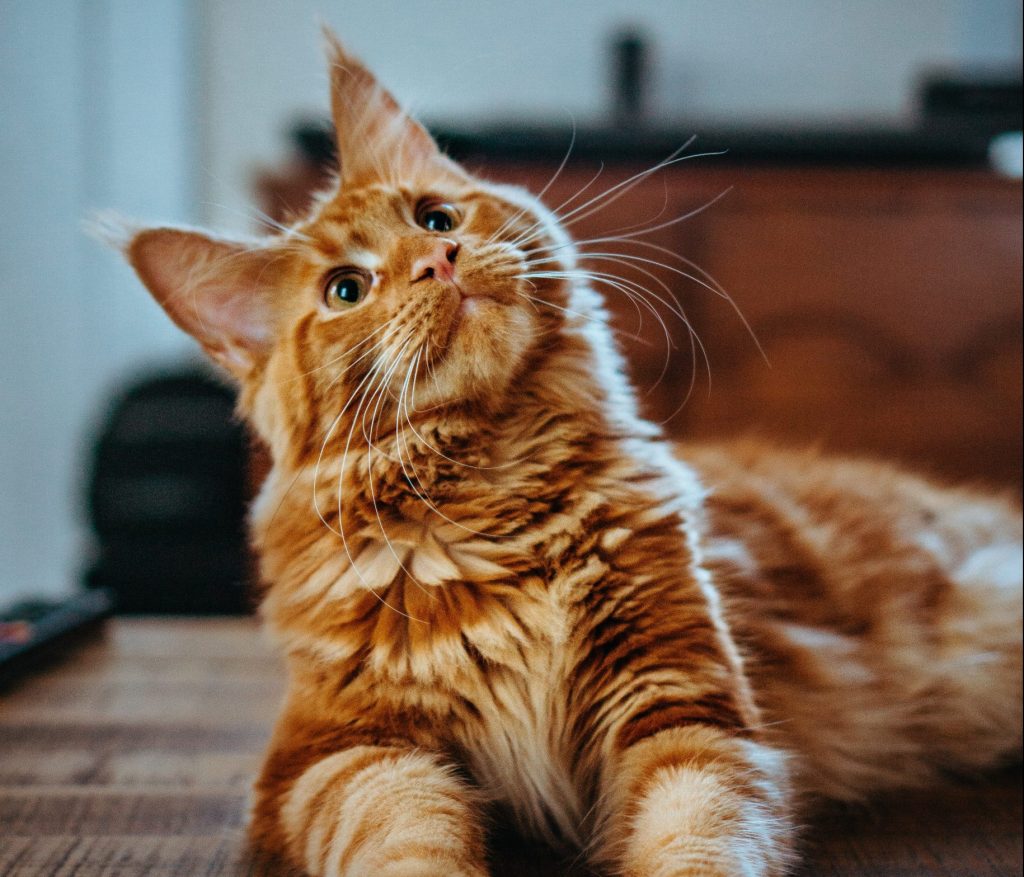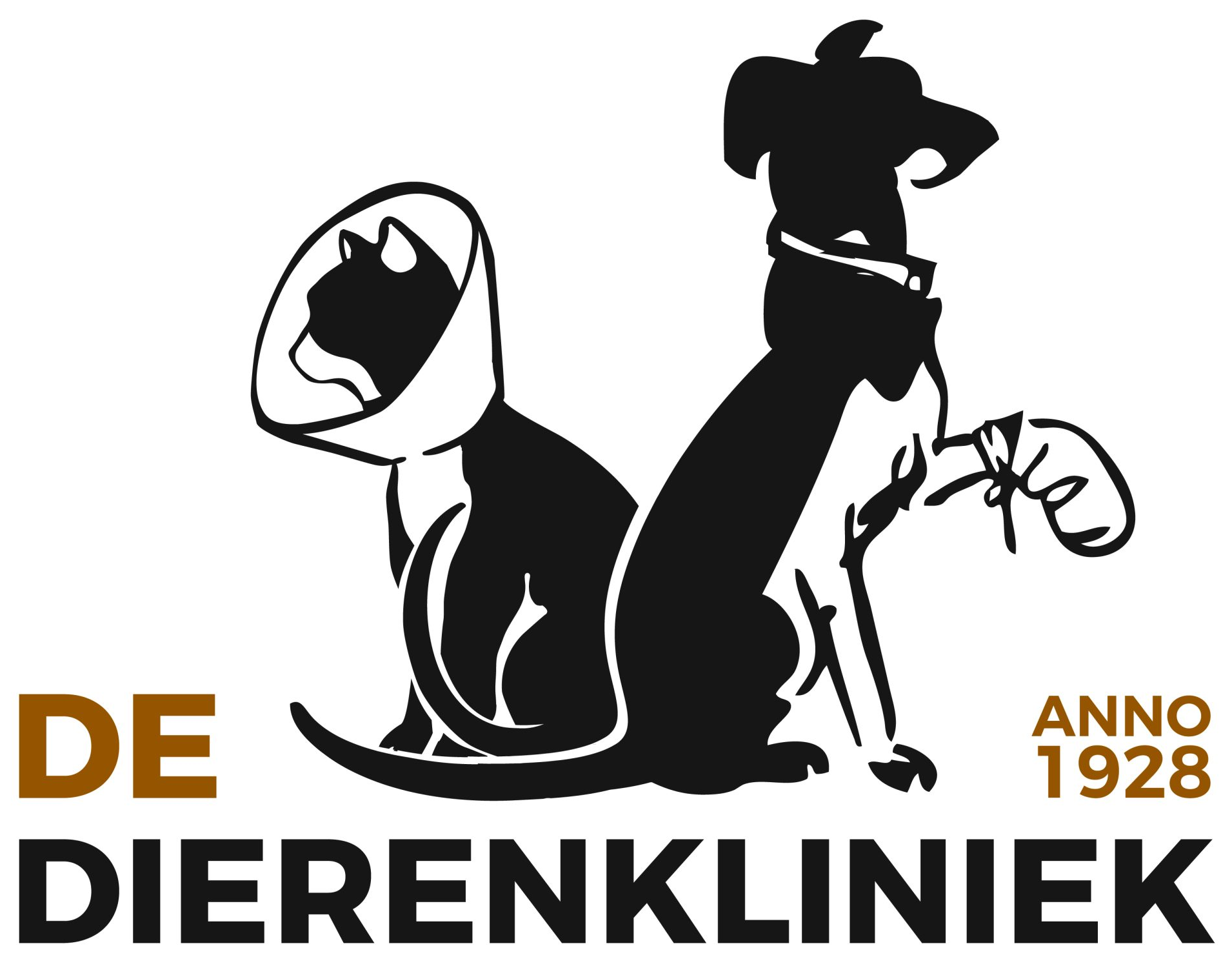Hyperthyroidism: Overactive thyroid
What is hyperthyroidism in cats?
Hyperthyroidism, better known as an overactive thyroid, is a condition that often occurs in cats over 8 years old. The thyroid gland consists of two lobes and is located on either side of the trachea. Sometimes there is extra thyroid tissue present in the neck or chest, this is called ectopic thyroid tissue. Hyperthyroidism is usually caused by a benign tumor of the thyroid tissue that is fortunately easy to treat.
What is the function of the thyroid?
The thyroid gland produces the thyroid hormone (also called thyroxine or T4). This hormone, secreted into the blood, has an effect on the metabolism. Several organs are affected by this, such as the heart, gastrointestinal tract and the nervous system.
What are the symptoms of an overactive thyroid?
The most common symptoms of an overactive thyroid are:
- weight loss despite good appetite
- drink a lot and urinate a lot
- hyperactivity / restlessness
- dull coat
- looking for cool places
- increased heart rate, heart problems
- alternating stools
- vomiting
Without treatment, cats with an overactive thyroid will feel unwell, become emaciated and develop various complications.
How do we diagnose thyroid problems?
Physical examination of the thyroid gland
Often we can already feel an enlarged thyroid gland in the neck. This often gives an indication that something is wrong with the thyroid gland. Sometimes it can be that your cat has thyroid tissue in a place that we cannot feel (chest), then other methods are needed to be able to diagnose hyperthyroidism.
Blood test for thyroid problems
By means of blood tests we can determine whether the amount of thyroid hormone in the blood is too high. We always do a complete blood test, so that we do not miss any other diseases. Because we can do this at the practice, we often have the results the same day.
There are a few things we need to keep in mind:
- it may be that an overactive thyroid gland “masks” a kidney problem
- it can happen that an enlarged thyroid gland can be felt but that the blood value is still within the normal values. We then advise to test the value again after 4-8 weeks
- Sometimes it can also be the case that the thyroid value in the blood is lowered due to another condition (for example diabetes, kidney problems or tumors) and we therefore find a false low value.
- liver values are often also increased in a cat with hyperthyroidism, but this does not necessarily mean that your cat has a liver problem
Scan for thyroid problems
Another option is to refer your cat for a thyroid scan. This will determine with certainty whether there is hyperactive thyroid tissue and, if so, where exactly it is located in the body.
How do we treat hyperthyroidism?
- Treatment with radioactive iodine
- Thyroid inhibitors
- Power supply
- Surgery – operation
All treatment options have their own advantages and disadvantages, which are briefly explained below.
Treatment with radioactive iodine
Radioactive iodine is used to destroy the overactive thyroid gland. The radioactive iodine is injected subcutaneously with a needle. 95% of cats recover after a single injection. It is a safe procedure and no anesthesia is required for surgery.
However, there are also disadvantages to this treatment: approximately 5% of cats develop permanent hypothyroidism (underactive thyroid gland) as a result of the treatment and will then have to be treated again with medication. Due to radioactive radiation, your cat must remain in a special admission for at least 5 days. You must also take precautions when your cat is allowed to go home again. For example, your cat may not come into contact with pregnant women and children under the age of 18. Your cat must remain indoors for three weeks due to the radiation. You come into contact with the radiation via your cat’s urine, feces and saliva. That is why you must keep the litter box extra clean during this period. We advise you to wear gloves when doing this. If you want to have your cat treated with radioactive iodine, we refer you to the University of Ghent, Dierenkliniek De Lingehoeve in Lienden or the University Clinic for Companion Animals in Utrecht. Treatment with radioactive iodine is the most expensive treatment in the short term.
Thyroid inhibitors
An alternative treatment is the administration of thyroid inhibitors (Thiafeline®/ Felimazole®). Initially, your cat will receive this medication in tablet form; if this does not work, we can switch to transdermal ear ointment.
Antithyroid drugs can treat hyperthyroidism, but not cure it. Your cat will need to be given medication 1-2 times a day for the rest of its life. Unfortunately, not all cats accept this. The medication can also have unpleasant side effects, such as vomiting, diarrhea, allergic reactions/itching, and lack of appetite. Side effects that may lead to discontinuation of therapy include bone marrow suppression and itching of the head.
Nutrition
A third alternative for an overactive thyroid is to offer your cat a modified diet. We recommend the Y/D products from Hill’s. This is a low-iodine diet, available in both kibble and canned food. During the first week, you slowly get your cat used to the new food by mixing it with the old food. After 12 weeks of following a strict Y/D diet, almost all cats have normal thyroid values again; in some cases this happens even faster. This treatment is the cheapest of the various options. Cats that do not have a thyroid problem may also eat Y/D, but must also be given different food!
However, you must follow the diet strictly. Your cat may not eat anything else during this period, otherwise the treatment will not work. No cat milk, no plants, no sweets and no secretly licking plates… You cannot keep a close eye on cats that go outside, so this diet is not recommended for this target group.
Surgery (thyroidectomy)
A final treatment option is to perform a thyroid operation (thyroidectomy). During this procedure, the thyroid gland is removed in whole or in part. If the procedure is successful, your cat will only experience discomfort from the anesthesia after the procedure, but this is short-lived.
However, the procedure does not always have the desired result. In 80% of cases, the problem returns. Ectopic thyroid tissue (which is located elsewhere in the body, for example in the chest cavity) cannot be surgically removed. In this case, surgical intervention is not possible. Sometimes, the parathyroid gland can be damaged after or during treatment, which can cause your cat to experience problems with its calcium balance. And in some cases, medication must still be given daily after the procedure.
Which treatment is best?
Without a doubt, radioactive iodine treatment is the best. This is considered the safest and most efficient therapy worldwide. However, the choice of treatment depends on the nature and cause of the condition (benign or malignant), the age and further condition of your cat, the ease with which tablets can be administered and of course the preference and budget of the owner.
Before we can refer your cat for radioactive iodine treatment, we first want to be sure that the thyroid tumor can be inhibited. We do this by giving Thiafeline®/Felimazole® tablets for a period of 3-4 weeks.
Prognosis
Hyperthyroidism is in principle treatable. However, the simultaneous presence of impaired renal function makes the prognosis less positive.
Follow-up checks for treatment of hyperthyroidism
After starting treatment, regular check-ups are scheduled to ensure that your cat remains stable (after all, the thyroid gland continues to grow, which means that the dosage of thyroid inhibitors sometimes has to be adjusted) and that side effects or additional diseases (such as high blood pressure, reduced kidney function) must be identified in a timely manner so that treatment can also be started for these.
Schedule of follow-up checks for thyroid patients per treatment
Radioactive iodine
- Checking of thyroid values and kidney function in the blood and checking urine after 4 weeks, 3 months and 6 months after treatment
- Then once a year a blood test and twice a year a blood pressure measurement and urine test
Nutrition
- 4 weeks after starting the diet: check T4 levels and creatinine in the blood, check urine and measure blood pressure
- On 8 and 12 weeks: check T4 values and creatinine in the blood and check urine
- Then every 6 months: check T4 values and creatinine, check urine and measure blood pressure
Thyroid inhibitors
4 weeks after starting medication: check thyroid levels, creatinine and bone marrow function by means of a blood test
- If blood values are good: check blood, urine and blood pressure every 3-6 months
- If the blood values are not good: adjust the dosage of the medication; re-check the blood and urine after 4 weeks
If you have any questions about this topic, please contact us!

Come by for your annual senior check-up!
As cats get older, they get more and more health problems. Be on time and make an appointment for the annual senior check-up.

